Firefighters have now left the scene of a massive Highland wildfire near Cannich – two weeks after it was first reported.
The remaining fire crew left the scene at 6.30pm on Sunday after maintaining a presence for the past 14 days.
A fire spokeswoman confirmed crews left the scene last night but will return on Monday morning as a precaution, while forestry crews remain on scene.
Shocking footage taken from an RSPB helicopter earlier in the week has revealed the scale of the huge fire.
It was even seen from space and has destroyed land nearly double the size of Elgin or more than 2,000 football pitches – stretching to six square miles.
Previously, it was thought the fire covered an area of 30 square miles – which would have made it the largest ever in the UK – however, that number has since been revised.
It is now thought the wildfire has a burn perimeter of just over 11 miles. The burn area is estimated to be just short of six square miles.
Fire crews investigating the blaze
The fire service is investigating what caused the blaze, while Forestry and Land Scotland believe it may be linked to wild camping in the area.
A helicopter was called in to assist with water bombing as the firefighters fought back against the flames.
Visibility due to smoke has been a consistent problem in the area.
Cannich is a rural area and the main concern has been wildlife in the area, as it spread to Corrimony Nature Reserve.
The incident has been labelled a “wildlife catastrophe” as ground-nesting birds have been disturbed, and animals forced to flee.
Woodland and heather has been greatly damaged in the fire.
‘Thoughts with those injured in wildfire’
Meanwhile the fire service is also investigating a crash involving one of its vehicles.
Two crew members were taken to the hospital where they were kept for observation. They have since been discharged.
Ross Ewing, director of Moorland at Scottish Land and Estates,said: “Our thoughts are with the firefighters who have been injured tackling the wildfire in the area around Cannich.
“Nearly 3,000 hectares (7,413 acres) of land have already been burned in this fire and it follows on from the huge wildfire near Glenuig in April, which was estimated to be the second largest ever recorded in the UK.”
Crews working around the clock to control Cannich wildfire
Firefighters used knapsack sprayers, beaters and hose reel jets to monitor the area and control the fire spreading.
At the height of the fire, nine crews and a specialist resource units were sent.
Police officers were on-hand supporting crews until May 30, alongside a team from Forestry and Land Scotland (FLS) and neighbouring landowners, including RSPB Scotland.
Meanwhile, at Corrimony wind farm, a crew was on standby watching for activity in the area.
Fire service group commander Niall MacLennan said crews are working “tirelessly” amidst the challenging conditions to bring the fire to a head.
He said: “Cannich has been a challenging incident and our crews are working tirelessly to tackle the fire and stop further spread.
“Extinguishing a fire on this scale requires a large amount of resources, including the use of helicopters to bolster our response.
“Many of our rural and remote communities are hugely impacted by these incidents, which can cause significant environmental and economic damage.”
‘Cannich wildfire is a mini version of a war’
Simon McLaughlin, site manager Corrimony RSPB was at the scene of the Cannich wildfire last Wednesday surveying the scale of the fire damage.
Speaking to The P&J, he described the situation it as an ongoing “war” as fire crews battled through the heat.
He said: “It’s a mini version of a war. You’re fighting something that is unforgiving and you’re also, at the back of your mind, thinking about people, properties, wildlife and habitats.”
Mr McLaughlin says work to restore the damage has only just begun, adding: “It’s been 25 years of hard work and a lot of money in planting these trees, getting them established and getting the habitat in good condition.
“We’ve got a big job to try and help nature recover from this and nature will do it to a degree, but if there is any help or support out there that people can offer, it would be greatly received.”
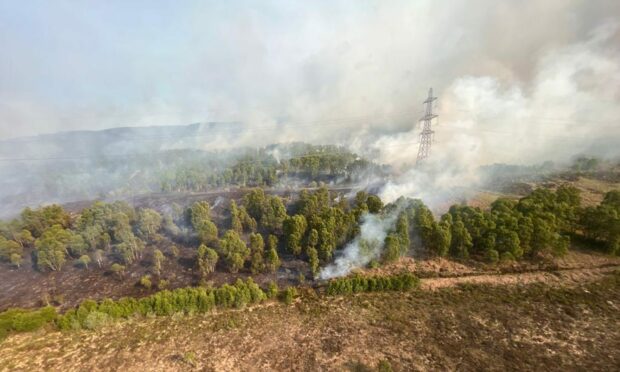
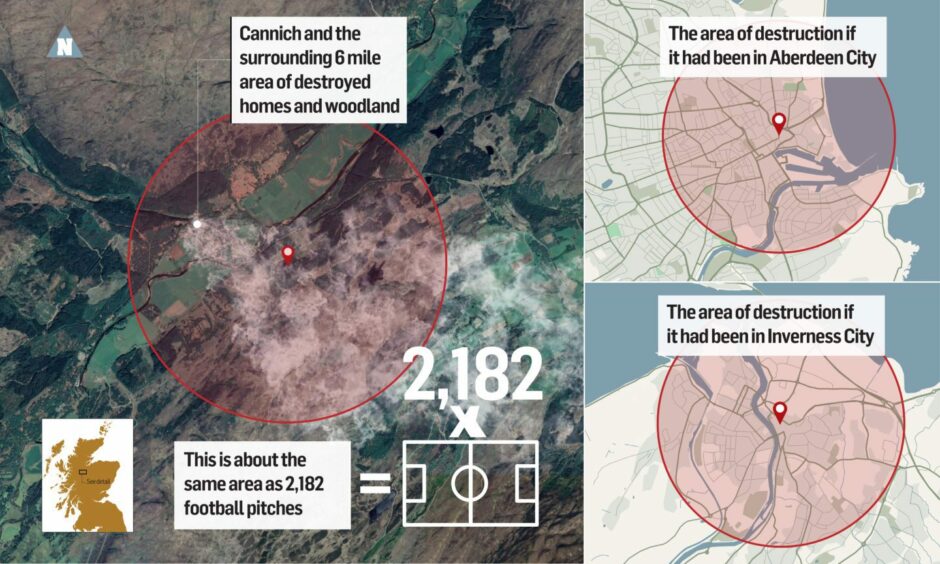

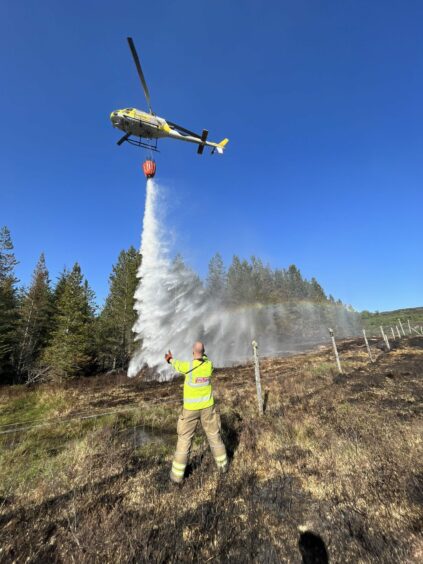

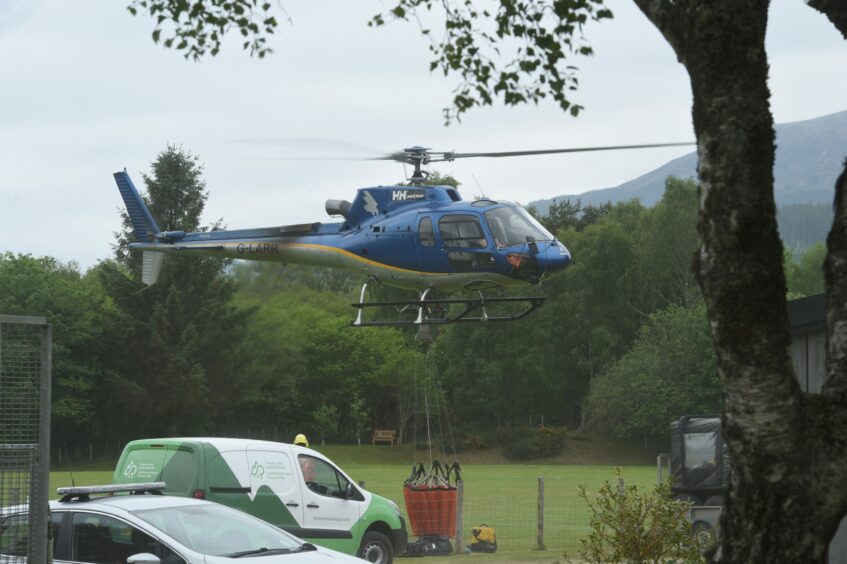
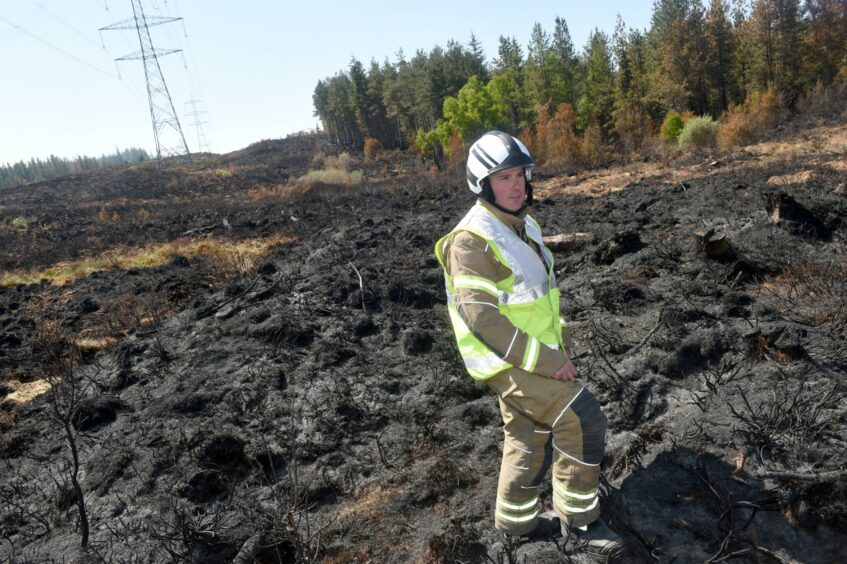
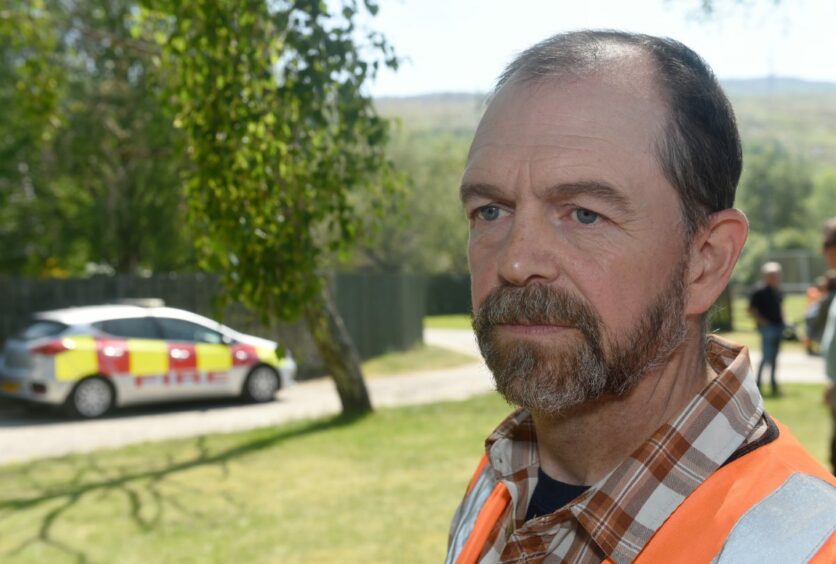
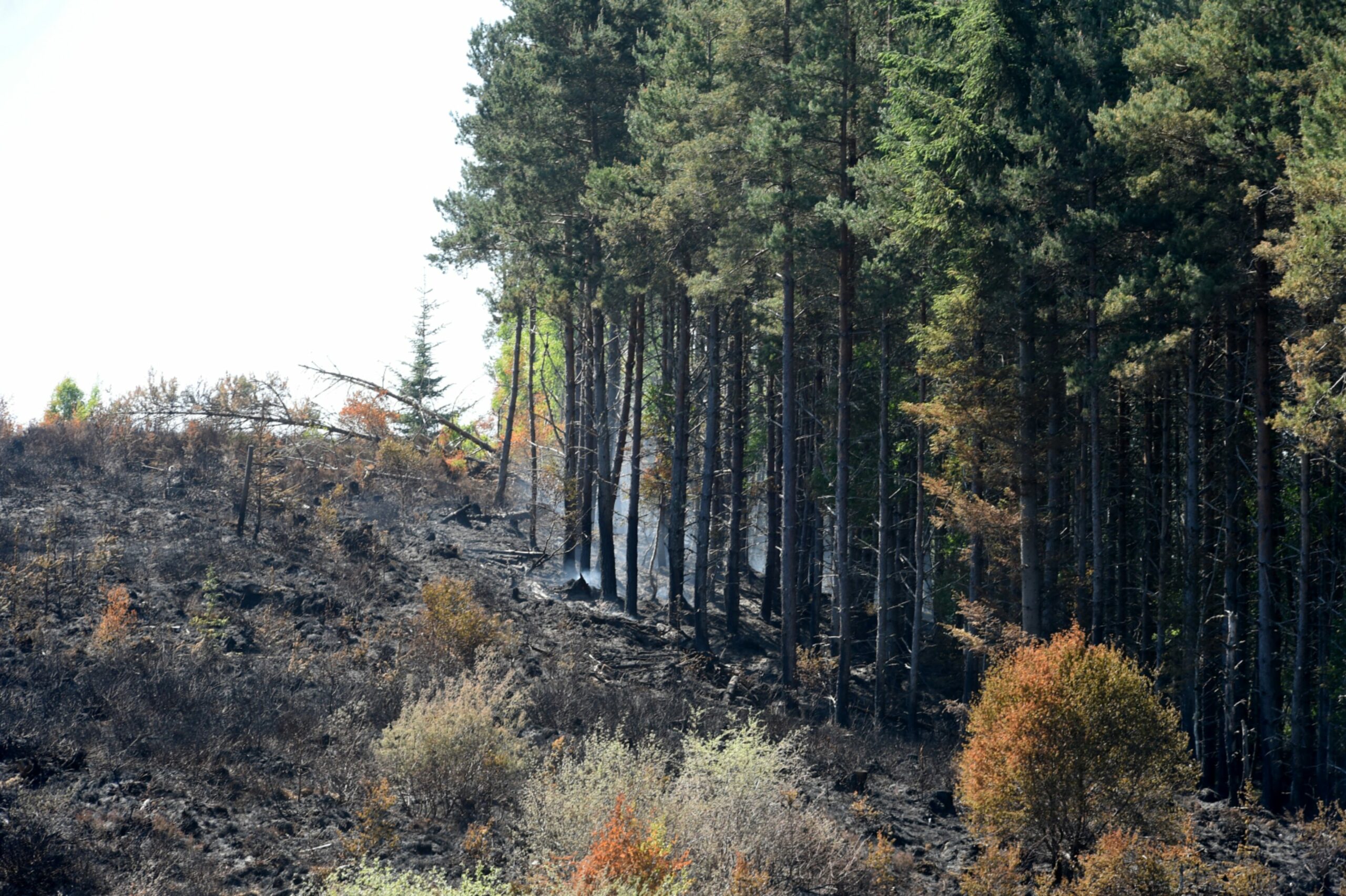
Conversation